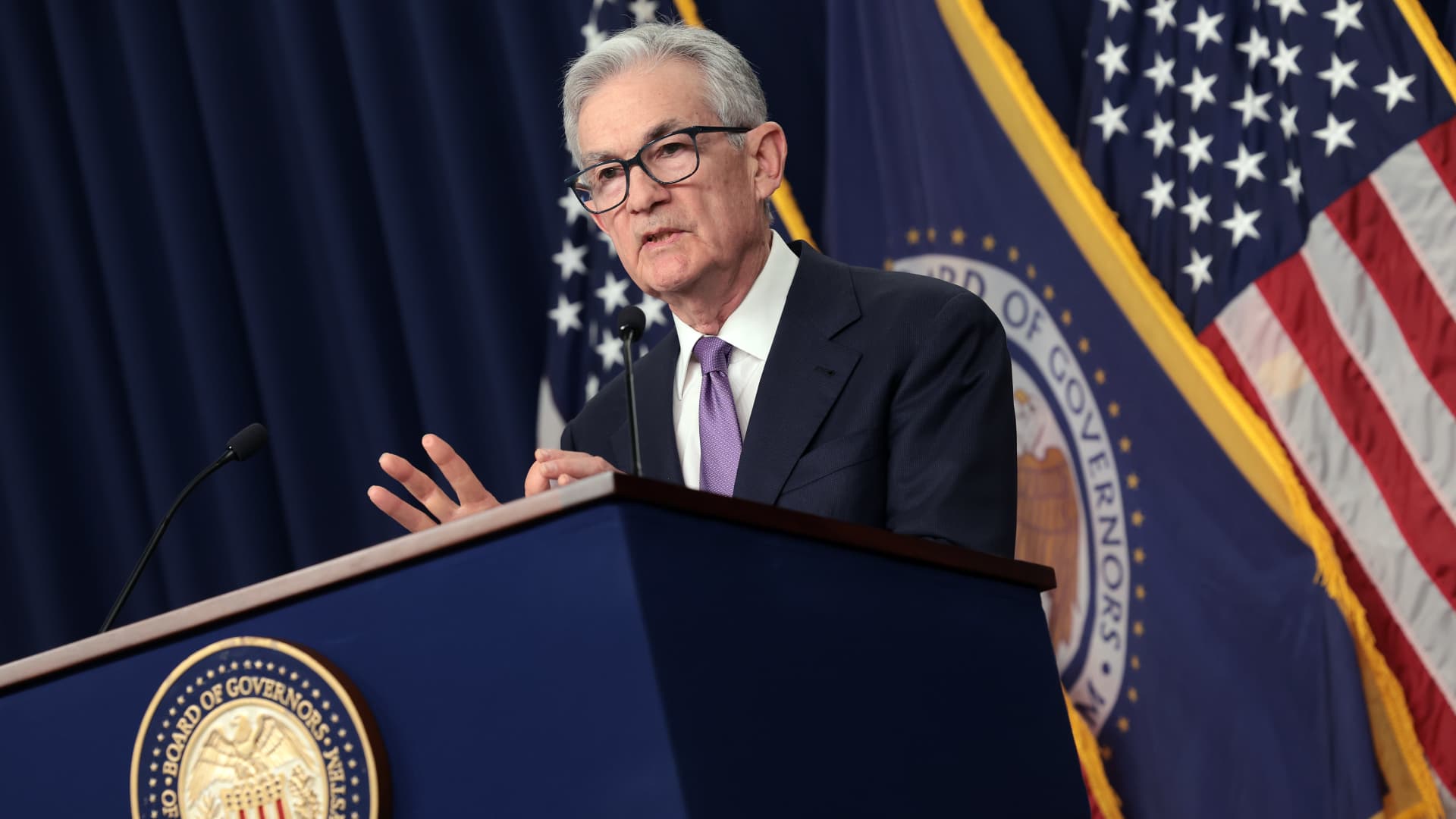Traders expecting the Federal Reserve to slash interest rates aggressively this year received at least a bit of a wake-up call Friday from the December jobs report. Though pushed by a surge in government hiring, the 216,000 gain in nonfarm payrolls to end the year served as a reminder that the U.S. labor market, and the broader economy, remains alive and well despite a series of Fed rate hikes and in no apparent need of immediate help. A 4.1% annual increase in wages added to the story that inflation has not yet been vanquished and policymakers may be reluctant to go overboard in providing monetary easing this year. “The overall story the Fed will take from this is they have been right to push back on expectations of a quick pivot towards cutting rates, starting in March and maybe six this year,” former Fed Vice Chair Roger Ferguson said Friday morning on CNBC’s ” Squawk Box .” “This sort of knocks the legs out from that, from the standpoint of the Fed. So I think you’ll continue to hear some pushback there.” Traders in the fed funds futures market reacted to the report, briefly reducing the chances of a March rate cut, though that changed and the probability swung back to about a 76% probability for a quarter percentage point reduction, according to the CME Group’s FedWatch gauge. However, market expectations for the full year dipped a bit, but futures pricing still pointed to six cuts this year. Neuberger Berman senior portfolio manager Steve Eisman, famous for his “Big Short” bet against the housing market before the 2008 financial crisis, told CNBC earlier this week that the Fed is likely to take a more cautious approach. Eisman said the Fed won’t want to make the same mistakes as the central bank in the 1970s and early 1980s, when it raised rates to bring down inflation then cut them as the economy started to wobble, only to have to hike dramatically later. “If there’s no recession, I don’t see any reason why the Fed needs to be aggressive in cutting rates. What for?” Eisman said. Following the December Fed meeting , officials penciled in three rate cuts in 2024. Markets have continued to anticipate even more easing, as Wall Street interpreted post-meeting comments from Chair Jerome Powell as indicative of the Fed in a more dovish posture . However, Friday’s report could cause officials “to question if the job market has softened enough,” said Jason Pride, chief of investment strategy and research at Glenmede. “Particular attention is likely to be paid to the wage growth figures, which run the risk of reinforcing services-based inflation which has remained stubbornly above the Fed’s preferred range. This could reinforce how unrealistic the market’s call for 6-7 rate hikes may prove in 2024,” Pride added. Minutes from the FOMC’s December session reinforced the likelihood of rate cuts ahead, but provided no timetable and reflected concern from Fed members that the path ahead for the economy holds a high level of uncertainty. “You’ll hear them continue to use words like ‘cautious,’ ‘too early [to] declare victory,’ ‘preparing to move nimbly if need be.’ So I think this leaves them roughly where they were before, pushing back on the notion of many rate cuts this year,” Ferguson said. “There’s some things here that do suggest potentially, a hard landing might be ahead of them as well.”
This story originally appeared on CNBC

